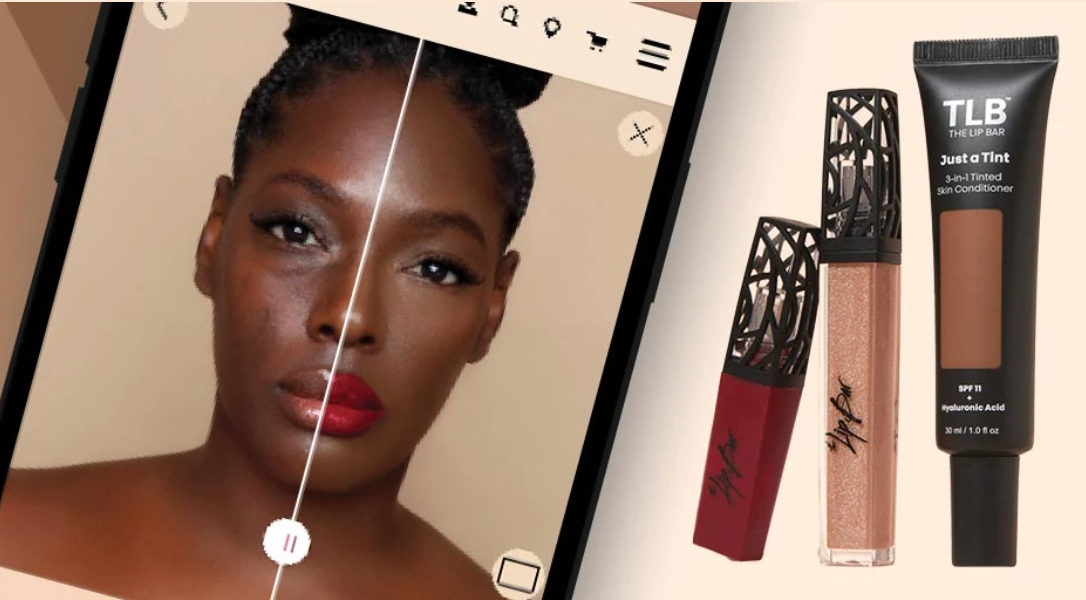Beauty brands known for advancing product inclusivity are adopting AR try-on.
Both The Lip Bar and Fenty Beauty have recently added AR try-on to their DTC sites using technology from Perfect Corp. With inclusive shade ranges, The Lip Bar and Fenty Beauty are utilizing the technology for multiple product categories. These include complexion products, which have been one of the biggest challenges for AR try-on tech.
The Lip Bar’s new AR try-on tool was launched in August with three products to start: its lip gloss, its liquid matte lip color and its tinted skin conditioner.
The tinted skin conditioner “provided the greatest challenge” in the nine-month development process, said Melissa Butler, CEO of The Lip Bar. “The process of bringing virtual try-on to market was long,” she said. “I’m sure the process could’ve been faster, but we want it to be as precise as possible, so the customer is getting exactly what they’re hoping for.” The brand next plans to introduce virtual try-on for its concealer, its four-in-one face palette and its eyeshadow.
Also in August, Fenty Beauty introduced on its website virtual try-on for over 400 shades of products across its complexion, cheek, eye and lip categories.

A technology that attracted significant interest from beauty brands as an alternative to physical testers, AR try-on has seen accelerated demand during the pandemic.
Ad position: web_incontent_pos1
“The reality is that we are inundated with technology, and it’s moving so quickly that customers expect technology tools like virtual try-on,” said Butler. “In order to have the best possible direct-to-consumer business, we have to stay on top of the latest tech.”
These brands’ adoption of the features come as inclusivity in online makeup try-on is being addressed by the beauty industry. Sephora, for example, recently announced the expansion of shades in its Color iQ shade-matching system. Technological bias has received growing attention in discussions of algorithms and everyday technologies.
“Brands leveraging virtual try-on are now able to evaluate a full spectrum of skin tones while also considering the surrounding environment and lighting, which guarantees the most accurate match,” said Alice Chang, the CEO of Perfect Corp. “Backed by thousands of clinical images, the virtual try-on experience can ensure accuracy and inclusivity across the incredibly wide and diverse spectrum of skin tones.”
But complexion product virtual try-on has come much later than lipstick, eye makeup and even nail offerings. In addition to beauty brands, tech platforms including Google, Snapchat, Instagram and Pinterest have expanded or added AR makeup try-on during the pandemic. Most platforms have started with lip and eye products.
According to Butler, complexion accuracy is possible if “you’re willing to do the work.”
Ad position: web_incontent_pos2
“It took us months to figure out complexion [products],” she said. “We tested the technology on people of different undertones to make sure they’re landing on the right color every time.” Ensuring the accuracy of the results includes alerting the user when the room’s lighting is not good enough to yield a good match.
“Over the years, the technology has improved, and part of the reason is that more people have implemented it,” said Butler. “It’s made it easier for brands like The Lip Bar, which is naturally inclusive, to have access to the service because we can afford it. Brands like The Lip Bar using virtual try-on will undoubtedly improve the technology over time because [that will mean] there’s a greater sample to pull from.”




